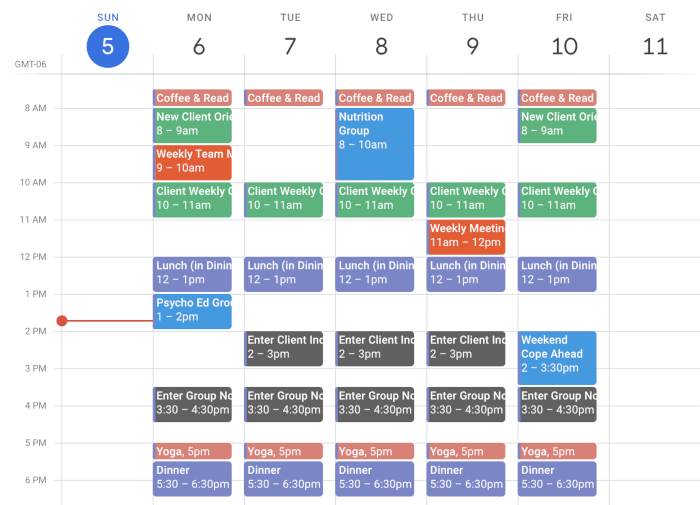Mastering Time Management for Working Parents: Creating Balance in a Chaotic World
Current research reveals a compelling narrative: approximately 70% of households with children feature dual-career parents, while single-parent families continue reaching unprecedented numbers. This demographic reality means countless parents navigate perpetual conflicts between competing demands, experiencing constant tension across multiple life domains, frequently compromising their personal wellness throughout this challenging process. However, there’s encouraging news—implementing strategic approaches and fundamental perspective adjustments can help you reclaim schedule control and establish greater synchronization between professional obligations and personal commitments.
Strategic time management for working parents doesn’t involve forcing additional commitments into already packed schedules or pursuing unrealistic perfection standards. Rather, it encompasses making deliberate decisions, developing customized organizational systems, and mastering the art of prioritizing genuinely significant matters. Let’s examine actionable methodologies that can transform your daily turbulence into structured, meaningful existence.
Primary Time Management Obstacles Facing Working Parents
Parents balancing careers encounter distinctive hurdles that professionals without children rarely experience. Recognizing these specific challenges becomes the foundational step toward creating practical solutions that function effectively in authentic circumstances.
The dawn scramble represents perhaps the most universally challenging segment of any working parent’s routine. Managing personal preparation, breakfast creation, locating misplaced assignments, and ensuring punctual departures transforms mornings into high-stakes competitions. Factor in unexpected emotional outbursts, overlooked school forms, or unwell children, and meticulously planned schedules collapse before 8 AM arrives.
Spontaneous disruptions constitute another persistent reality. Children operate independently of business schedules, their requirements cannot be coordinated around professional deadlines. Whether receiving school communications, managing childcare crises, or handling uncooperative toddlers, these interruptions can completely derail even exceptionally organized parents’ daily plans.
The cognitive burden often becomes the most draining challenge overall. Working parents shoulder invisible responsibilities of continuously managing household logistics—tracking medical appointments, monitoring educational events, overseeing domestic supplies, and synchronizing multiple schedules. This mental coordination continues throughout work periods, generating persistent overwhelm sensations.
Perfectionism and guilt amplify these practical difficulties. Numerous working parents experience inadequacy feelings, believing they’re providing insufficient attention to either career or family responsibilities. This emotional weight triggers over-commitment patterns, excessive people-pleasing tendencies, and unrealistic perfection pursuits that ultimately complicate time management further.
Fundamental Time Management Principles for Working Parents
Successful time management foundations rest upon adopting essential strategies addressing working parent life’s unique requirements. These represent adaptable frameworks rather than universal solutions, allowing customization according to individual circumstances.
Priority-driven organization proves essential for working parents. Rather than attempting universal task completion, concentrate on identifying non-negotiable elements within professional and family spheres. Establish straightforward categorization systems: urgent plus important, important without urgency, urgent without importance, and neither urgent nor important categories. This framework facilitates rapid decision-making regarding optimal time and energy investments.
Scheduled time allocation functions exceptionally well for parents because it acknowledges daily phases and transitions. Reserve periods for concentrated work during peak focus times, treat family interactions as sacred commitments, and incorporate buffer zones anticipating inevitable unexpected situations. Many accomplished working parents discover that 90-minute scheduling blocks enable substantial progress while maintaining sufficient flexibility for interruption management.

Routine establishment power cannot be underestimated. While spontaneity maintains importance, having consistent patterns for recurring activities eliminates decision fatigue while creating predictability for both parents and children. This doesn’t require rigid scheduling, but rather dependable patterns everyone can anticipate.
Task batching represents a transformative approach for working parents. Instead of constantly switching between different activity types throughout days, cluster similar tasks together. Batch email responses, weekend meal preparations, or designated household administrative periods. This methodology reduces mental energy required for constant task-switching.
Strategic boundary setting becomes crucial. Every commitment acceptance represents declining something else. Before accepting additional responsibilities, honestly evaluate alignment with current priorities and available capacity. Remember that declining good opportunities enables accepting exceptional ones.
Morning and Evening Systems That Generate Results
Your day’s framework—morning and evening patterns—can either establish success foundations or generate unnecessary stress. The key involves designing sustainable, realistic routines flexible enough to accommodate family life’s unpredictability.
Developing Streamlined Mornings
Begin morning routines the previous evening. Organize clothing selections, prepare lunches, and arrange breakfast components for quick assembly. Many working parents discover that investing 15-20 minutes in evening preparation saves 30-45 minutes the following morning while dramatically reducing stress levels.
Rise 30 minutes before children when possible. This brief quiet period allows personal centering, daily priority review, and urgent matter handling before family activities commence. Utilize this time for personally fulfilling activities—meditation, exercise, reading, or peaceful coffee enjoyment.
Create visual systems promoting children’s independence. Picture schedules, clothing organizers, and designated spaces for backpacks and footwear enable kids to assume morning responsibility ownership. This reduces micromanagement needs while teaching valuable life competencies.
Cultivating Tranquil Evenings
Design evening routines helping families transition from daily activities toward rest and connection. This might incorporate consistent dinner timing, homework periods, and bedtime rituals. Specific activities matter less than consistency and closure sensations they provide.
Dedicate the final pre-bedtime hour to family connection rather than work catch-up. This could involve shared reading, daily highlight discussions, or simply being present with children. These connection moments represent relationship investments yielding cooperation and emotional well-being dividends.
Prepare for upcoming days during evening routines. Include calendar reviews, necessary item preparation, and mental preparation for anticipated challenges or opportunities. This practice improves sleep quality and morning control sensations.
Delegation and Outsourcing: Strategic Advantage Tools
Many working parents resist delegation, believing they should personally handle everything. However, recognizing that personal completion isn’t always necessary often provides the breakthrough transforming time management from survival to flourishing modes.
Family-Based Delegation
Age-appropriate responsibilities extend beyond teaching accountability—they create family teams where everyone contributes to household operations. Young children can assist with simple tasks like toy organization, pet care, or laundry sorting. Older children can assume complex responsibilities including meal preparation, yard maintenance, or personal schedule management.
Successful delegation requires clear expectations, proper training, and consistent follow-through. Don’t anticipate immediate perfection, but do expect effort and gradual improvement. Remember that goals involve adequate task completion by others rather than personal execution standards.
Strategic Task Outsourcing
Identify which activities consume significant time without requiring personal attention. Common outsourcing areas include house cleaning, landscape maintenance, grocery shopping, and meal preparation. While these services require financial investment, calculate time value and stress costs when making decisions.
Modern technology makes outsourcing increasingly accessible. Grocery delivery services, meal subscription boxes, and online shopping save weekly hours. Virtual assistants handle scheduling, research, and administrative tasks. Even occasional childcare or eldercare assistance provides breathing room for high-priority activity focus.
Support Network Development
Cultivate relationships with other parents offering mutual support. This might involve carpooling arrangements, childcare exchanges, or trusted emergency contacts. Remember that gracefully accepting help benefits everyone involved.
Don’t underestimate family member contribution potential. Perhaps grandparents could manage specific weekly activities, or teenage relatives could provide occasional babysitting. The key involves creating mutually beneficial arrangements while expressing genuine appreciation for received support.
Digital Solutions for Family Schedule Optimization
Strategically employed technology becomes working parents’ greatest ally. The key involves selecting tools that simplify rather than complicate life while ensuring consistent family usage.
Digital Calendar Coordination
Shared family calendars prove essential for schedule coordination. Google Calendar, Apple Calendar, or specialized family applications like Cozi enable color-coding different family members, setting reminders, and accessing schedules from anywhere. Include everything from work meetings to sports practices ensuring nothing gets overlooked.
Establish automatic notifications for important events while maintaining strategic timing. Reminders the previous evening and event mornings usually suffice without becoming overwhelming. Include location details and special instructions directly within calendar entries.
Task and Project Organization
Applications like Todoist, Any.do, or simple phone reminders help track ongoing projects and recurring responsibilities. Create separate lists for work, household, and family activities. Many parents find success with weekly review sessions updating task lists and planning upcoming weeks.
Utilize voice-activated assistants for quick idea capture, reminder setting, or shopping list additions. This hands-free approach works excellently while cooking, driving, or managing multiple activities.
Communication and Organization Systems
Family communication applications help older children stay connected and informed about schedule changes. Simple group texts or applications like Life360 provide peace of mind regarding everyone’s whereabouts without excessive intrusion.
Meal planning applications streamline grocery shopping and dinner preparation. Plan weekly meals, automatically generate shopping lists, and discover recipes using existing ingredients. This reduces decision fatigue while ensuring consistent dinner planning.
Financial and Administrative Automation
Automate as many financial and administrative tasks as possible. Establish automatic bill payments, use budgeting applications for spending tracking, and leverage online banking features. This reduces household financial management mental load while eliminating missed payment stress.
Establishing Clear Work-Family Boundaries
Among time management’s most challenging aspects for working parents involves maintaining distinct boundaries between professional and personal responsibilities. Without these boundaries, both life areas suffer as you experience constant multi-directional pressure.
Physical Boundary Creation
If working from home, establish dedicated workspace areas that can be separated from family activities. This enhances work-hour focus while signaling family availability status. When work time concludes, physically leave this space and engage completely with family.
For parents working outside homes, create transition rituals facilitating work-to-family mode shifts. This might involve clothing changes, brief walks, or spending moments reviewing family priorities before entering the house.
Temporal Boundary Establishment
Set specific work hours and communicate them clearly to both employers and family members. While flexibility remains necessary, having core work availability hours and dedicated family focus periods helps everyone understand expectations.
Resist urges to check work emails or accept calls during designated family time. Children need assurance of receiving your complete attention during certain periods, and you need mental breaks from truly disconnecting from work concerns.
Expectation Management
Communicate boundaries clearly to colleagues, supervisors, and clients. Many working parents find that availability transparency actually increases respect and trust. When people understand your availability windows, they can plan accordingly.
Maintain realistic expectations regarding domain accomplishments. You may not work late every night, but you can demonstrate high productivity during established work hours. Similarly, you may not attend every school event, but you can be fully present for attended ones.
Emergency Response Protocols
Develop clear criteria defining true emergencies justifying boundary crossings. Not every urgent request constitutes actual emergencies, and learning this distinction proves crucial for maintaining boundaries while remaining appropriately responsive to genuine crises.
Strategic Weekend Time Management for Working Parents
Weekends present unique opportunities and challenges for working parents. They often serve as periods for family connection, household maintenance, and personal restoration, but can become overwhelming without thoughtful management.
Structure and Flexibility Balance
Create loose weekend structures incorporating family activities, household tasks, and personal restoration time. However, avoid over-scheduling where weekends feel like additional obligation sets. The goal involves having frameworks ensuring important task completion while preserving spontaneity and rest opportunities.
Strategic Household Management
Use weekends for tasks difficult to accomplish during weekdays, but batch them efficiently. Dedicate specific time blocks to household projects, meal preparation, or administrative tasks. This prevents these activities from consuming entire weekends while ensuring adequate attention.
Consider implementing “one significant project” rules where you tackle one major household or family project each weekend. This might involve closet organization, family vacation planning, or home maintenance issue addressing. This approach prevents overwhelming task accumulation while maintaining steady progress on important projects.
Family Connection Prioritization
Prioritize unstructured family time where you can simply be present and responsive to emerging situations. This might involve nature walks, board games, cooking together, or casual hanging out without specific agendas. These moments often become treasured memories while strengthening family bonds.
Plan some family activities in advance while leaving room for spontaneous adventures. Having potential activity lists—park visits, new restaurant trials, or local attraction exploration—provides options without requiring extensive planning.
Personal Restoration Integration
Include time for personal activities restoring energy and well-being. This might involve exercise, reading, friend socialization, or hobby pursuits. Many working parents experience guilt about taking this time, but remember that self-care enables better family care.
Efficient Self-Care Approaches Requiring No Additional Time
The primary self-care obstacle for working parents often involves believing it requires significant additional time. However, the most effective self-care strategies can be integrated into existing routines without requiring major schedule modifications.
Micro-Moment Self-Care
Practice deep breathing during commutes, school pickup waiting periods, or other transitional moments. These brief practices help reset stress levels and improve overall well-being without requiring dedicated time blocks.
Use routine activities as mindfulness opportunities. Pay attention to morning shower sensations, savor coffee experiences, or notice surrounding beauty during ordinary moments. This practice transforms routine activities into restorative experiences.
Combined Self-Care and Family Time
Choose physical activities enjoyable with family members. Living room dancing, hiking, or active games provide exercise while creating family memories. This approach addresses multiple needs simultaneously without requiring separate fitness time.
Model healthy habits for children by openly prioritizing self-care. When children observe you prioritizing rest, healthy eating, and stress management, they learn valuable life skills while you address personal needs.
Energy Management Over Time Management
Focus on activities that energize rather than drain you. This might mean choosing genuinely restorative social activities, declining obligatory commitments, or rearranging schedules to align with natural energy patterns.
Pay attention to activities, people, and environments making you feel more alive and capable. Prioritize these whenever possible, even if it means making difficult choices about time investment.
Realistic Expectation Setting
Remember that self-care doesn’t require elaborate or social-media-worthy activities. Sometimes self-care means early bedtime, takeout ordering instead of cooking, or requesting help with household tasks. The goal involves supporting well-being in whatever way works for current circumstances.
Recognize that self-care needs change based on family developmental stages, work demands, and personal circumstances. What works during one life season may require adjustment as situations evolve.



